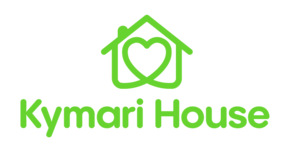Kymari House, Inc.
615-956-6106 ext. 6159566106
308 N Spring Street
Murfreesboro, TN 37130
Murfreesboro, TN 37130
Programs
Budget
$123,300.00
Description
The nationally recognized Supervised Visitation program at Kymari House provides the highest level of court ordered, professional supervision for at-risk children and their non-custodial parents. Even in cases involving allegations of abuse, neglect, or family violence, parents continue to have a shared responsibility for the well-being of their children, and children generally benefit from having regular contact with both of their parents. Kymari House provides a safe, child-friendly environment for this visitation. Without programs like this one, children may be placed at risk by having to visit with their parents in unsafe or high conflict environments where they may be forced to deal with adult issues they do not understand. Kymari House eliminates this undue stress and creates an environment where kids can just be kids.
Beneficiaries
Families
At-Risk Populations
Children and Youth (0 - 19 years)
Program Areas Served
Kymari House, 308 N. Spring Street, Murfreesboro, TN 37130
$123,300.00
Description
The nationally recognized Supervised Visitation program at Kymari House provides the highest level of court ordered, professional supervision for at-risk children and their non-custodial parents. Even in cases involving allegations of abuse, neglect, or family violence, parents continue to have a shared responsibility for the well-being of their children, and children generally benefit from having regular contact with both of their parents. Kymari House provides a safe, child-friendly environment for this visitation. Without programs like this one, children may be placed at risk by having to visit with their parents in unsafe or high conflict environments where they may be forced to deal with adult issues they do not understand. Kymari House eliminates this undue stress and creates an environment where kids can just be kids.
Beneficiaries
Families
At-Risk Populations
Children and Youth (0 - 19 years)
Program Areas Served
Kymari House, 308 N. Spring Street, Murfreesboro, TN 37130
CEO/Executive Director/Board Comments
| Parents who are court-ordered to supervised visitation with their children are often in turmoil. They may be experiencing mental illness, substance use disorder, domestic violence, or simply enmeshed in a high-conflict relationship. In all cases, their lives are not easily manageable, and engaging them in interventions is complex and time-consuming. This level of difficulty underlies the fact that Kymari House is the only non-profit agency in Middle Tennessee providing this service, despite a well-demonstrated need. This work requires extensive resources and expertise, all of which make the cost of providing services out of reach for most of the families in need of them. Key elements of this program include: 1) A secure facility where staff are able to maintain control over the physical environment. This allows us to ensure secure entrance/exit points, prevent unintended contact between custodial and non-custodial parties, and greatly reduce the risk of abduction; 2) Highly trained staff who understand family violence, many of whom have advanced degrees and many years' experience working with families in conflict. This high level of skill and training enables them to prevent and/or de-escalate potentially dangerous situations before they occur; 3) A robust staffing model which assigns an individual monitor with 'eyes and ears' on the children at all times, and a supervisor who monitors entrances/exits, ensures overall compliance, and can assist in ensuring the safety of all parties in the event of an emergency; 4) A thorough intake process in which all details of the case are assessed, safety risks are identified in advance, and orders of the court are placed on file. This process ensures that all parties are familiar with the rules and structure of the program and allows staff to develop a safety plan which incorporates all identified risks; 5) A sliding scale fee structure that ensures that no child is left in an unsafe situation due to an inability to pay for high-quality services. |

